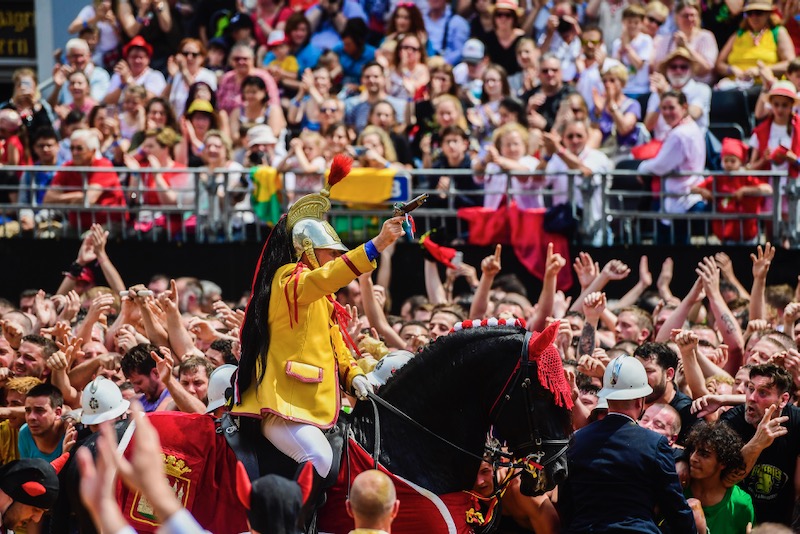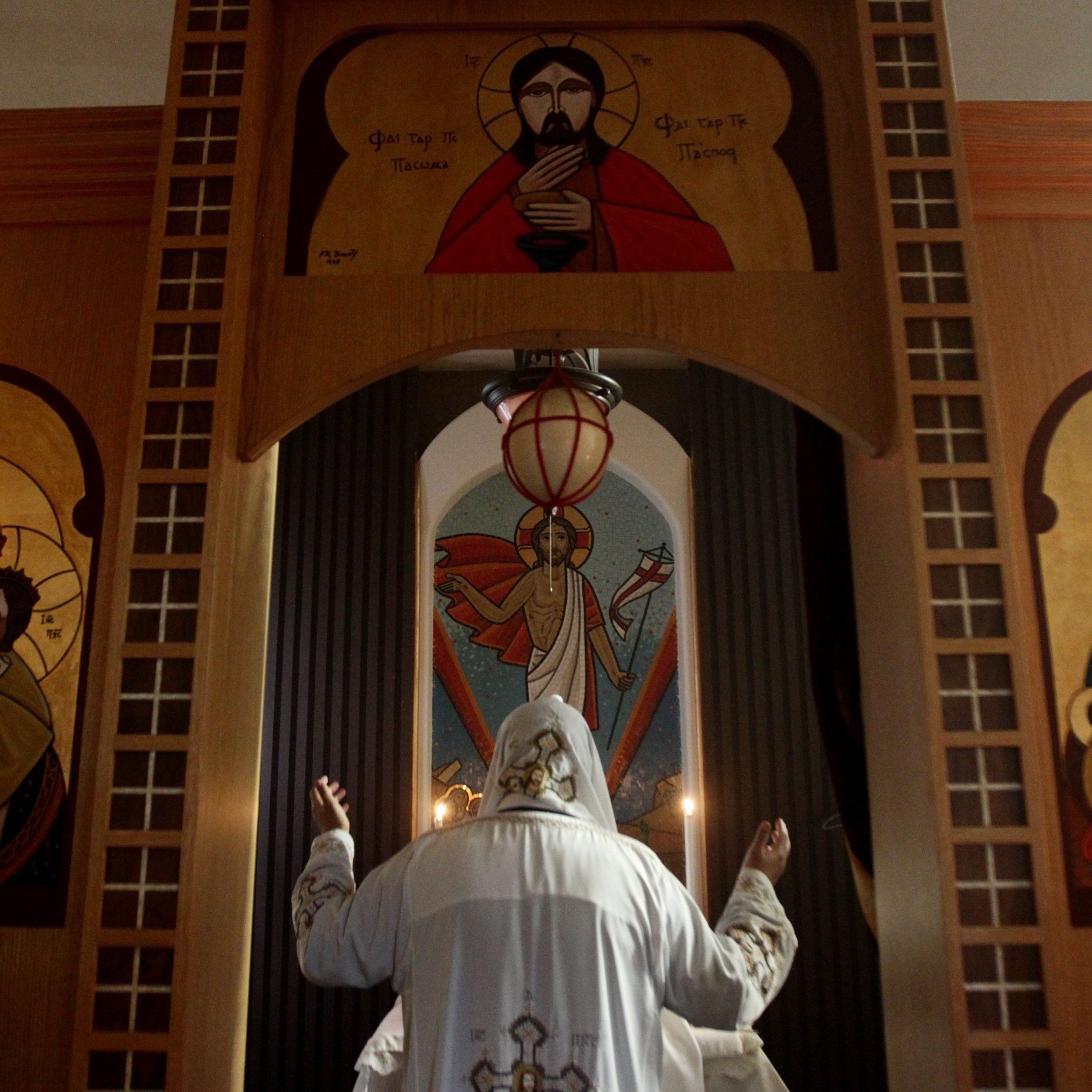A stone’s throw away from the normally busy Cairo-Alexandria desert road, behind a tall wall and a set of carefully guarded gates, lies Anafora. A bougainvillaea-lined track winds its way across 120 acres of farmland speckled with olive and mango groves, pear and fig orchards, vegetable plantations and herb gardens. Nearby are some of the earliest monasteries in the Christian world, founded by the desert fathers who first responded to the call of the desert in the third century.
These desert fathers are part of the tradition of Saint Mark, author of the Gospel of Mark, said to have founded the Coptic Church in the first century, making it one of the oldest Christian faiths. During their church services you can still hear the ancient Coptic language that was spoken in Egypt prior to the Arab conquest when Arabic eventually supplanted it. The arrival of Islam slowly reduced the Coptic Church to a sizable but beleaguered minority that today is the largest Christian minority in the Middle East.
A creation of Coptic Orthodox Bishop Thomas, Anafora was founded in 1999 as a Christian monastery and spiritual retreat centre. Since then, this ecumenical oasis has grown to include not only churches, chapels and guesthouses but also conference facilities and an education centre. Anafora welcomes visitors from all over the world. From Cairo residents seeking respite from the hustle and bustle of the hectic city to visitors from the "West" wanting a quiet space for meditation and spiritual contemplation amongst the palm trees.
But as the Coronavirus started taking hold in Egypt (which currently has just over 3,000 recorded cases of the virus) the difficult decision to close Anafora's gates to outside visitors was made. The priority now is to protect the community that lives in close proximity to each other. This means people can now safely continue to work, eat and, perhaps most importantly, pray together.
And thus, with its gates closed to the outside world, life at Anafora has continued seemingly unaffected by the events unfolding in the rest of the world, excepting the relentless stream of harrowing news updates seeping in through mobile phones.
Some of the gloomiest news to reach Anafora was the announcement earlier this month by Egypt's Coptic Orthodox Church that churches would stay closed even during Easter. This news has saddened Egypt’s Christians, many of whom take time off work to devote themselves to extensive prayers during the Holy Week. The Coptic Church follows, by the standard of most Western traditions, an intensely deep and intensive schedule as they join together in church to follow Jesus’ life hour by hour through his last week, culminating in Easter mass.
Readings from the Bible are recited or chanted, punctuated by repeated antiphonal chants of the Passover Hymn. The four Gospels are read in full over Holy Week. This allows worshipers to learn, reflect and contemplate the important teachings offered by the last week in the life of Jesus on earth. It also enables the faithful to appreciate the link between the Prophecies and the Gospels. Thus, this way of walking alongside Jesus in his final week on earth is an important way for us, in Bishop Thomas’ words, "to live with Him for a while, and to train ourselves to live with Him all the time".
The dedication and enthusiasm with which Copts take part in their services is one of the most impressive features of worship here in Egypt. "The love of the Church as the body of Christ is very apparent in the Coptic community", says Bishop Thomas, who visits a different church in his diocese of Al-Qusiyah each week.
One of this year’s congregation members, Cathy, from Australia, first spent Coptic Easter in Egypt twenty years ago. As someone with an evangelical background she found this to have a profound impact in discovering how the experiential approach to worship expanded and deepened her faith:
"Something that opened up for me, the ability, or the opportunity, to look for God, to experience God, to encounter God in more day-to-day experiences than perhaps I had before. I think it released something in me."
She has often wished, ever since that experience, to see the evangelical churches dedicate Easter week to "God’s big story", starting from Genesis through to Revelation, the latter which is read in full here during the great Paschal vigil.
As in other Orthodox traditions, and indeed in some parts of the Catholic tradition, Coptic services are immersive, deeply sensory experiences; litanies are long, chanting hymns are often accompanied by cymbals, incense is liberally used and there is a great deal of symbolic movement on the part of not just the priests but all the celebrants – processions, bowing, kneeling and prostration.
As a kinaesthetic learner, for Cathy the Coptic approach enabled her to worship not only through the logic of the mind, but through using all the senses; to see God through sight, sound, smell, and movement:
"We all learn and encounter truth in different ways. The Orthodox Church, for me, has provided an opportunity to understand myself, and to be open to God’s encounter."
Perhaps in these testing times of upheaval in the world, there is something to be learnt from our brothers and sisters in the East, and from the Easter story itself. At a time when the prophecies of the Old Testament speak with particular poignancy but offer little consolation Bishop Thomas believes the core Easter message itself provides comfort at a time such as this:
‘The resurrection is telling us that our life as human beings never ends; it’s eternal. When we are afraid we show that our main focus is on the physical life, the arena here, but we don’t think much about eternity.’
And thus, as the Easter week concludes for the Copts and the 55 day ‘Great Fast’ preceding it is finally broken, Anafora lives every day in gratitude, thankful to be able to celebrate Easter together in church when so many around the world are not. We continue to remind ourselves of the words from the Coptic Prayer of Thanksgiving that begins every prayer session: ‘We thank You for every condition, concerning every condition, and in every condition’.
Daniela Puska is a volunteer at Anafora. You can find more information and news from Anafora on their Facebook page.



 Loading ...
Loading ...
What do you think?
You can post as a subscriber user ...
User comments (1)
Thank you for quoting the following:
"“Anything Christian in Protestantism is... essentially and specifically Catholic"
It would be interesting to know which "critic" wrote this.
It is the only position that is historically tenable, and certainly the only position an outsider coming into the whole tragic debate can maintain.